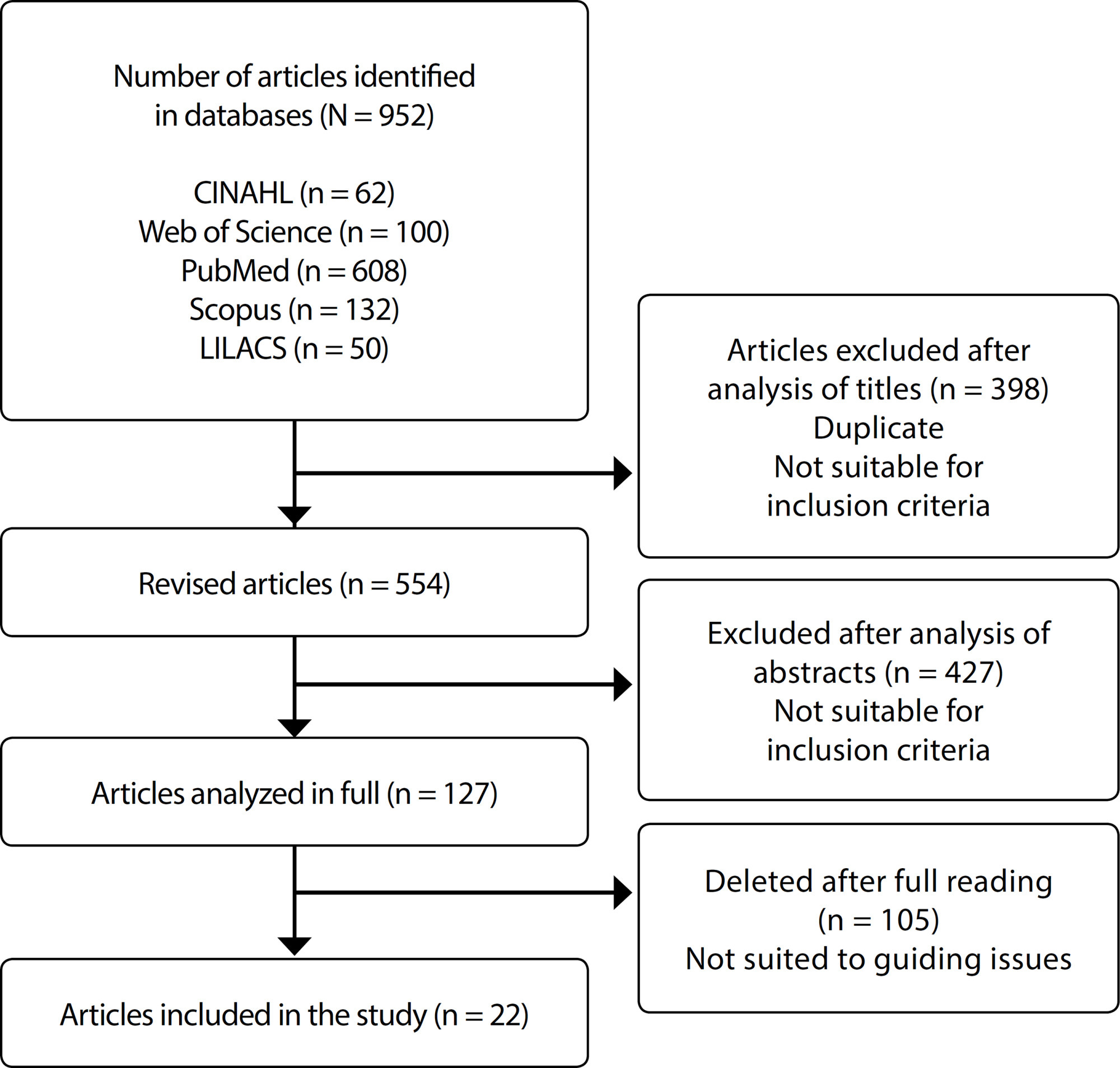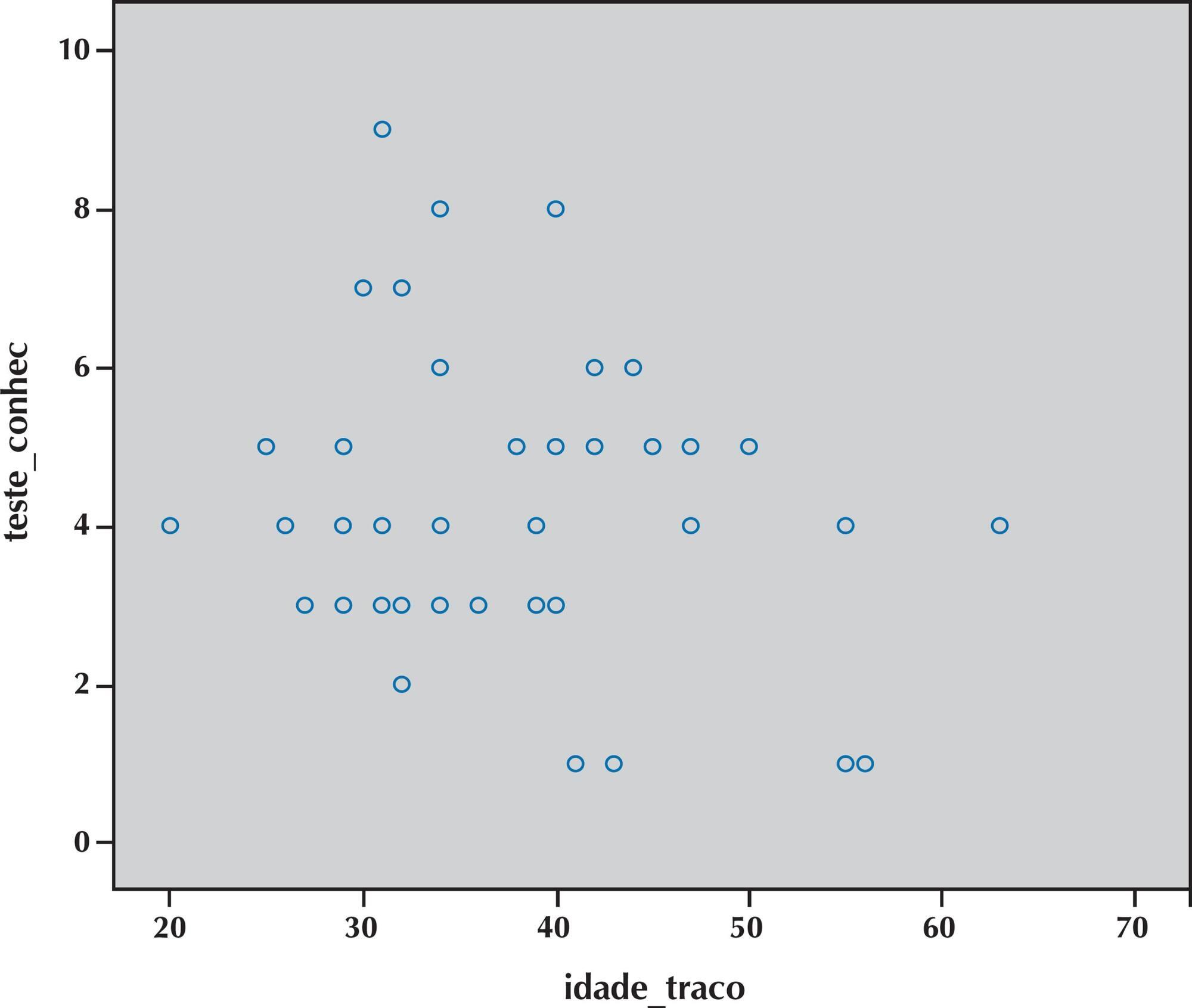-
REVIEW03-15-2024
Use of podcasts for health education: a scoping review
Revista Brasileira de Enfermagem. 2024;77(1):e20230096
Abstract
REVIEWUse of podcasts for health education: a scoping review
Revista Brasileira de Enfermagem. 2024;77(1):e20230096
DOI 10.1590/0034-7167-2023-0096
Views0See moreABSTRACT
Objectives:
to map the scientific evidence related to the characteristics, themes, and outcomes of using health education podcasts aimed at individuals over 18 years of age in intra or extrahospital environments.
Methods:
a scoping review, based on the Joanna Briggs Institute method, conducted in 11 databases, including studies from 2004 to 2022.
Results:
11 studies were selected, categorized, highlighting the characteristics, evaluated outcomes, areas, and conditions of podcast application, indicating it as an effective tool for promoting behavioral change, health promotion, and social interaction, demonstrating its potential to improve well-being, quality of life, and user/client autonomy.
Conclusions:
the use of podcasts proves to be an effective, innovative, and low-cost tool, with a significant social impact, being effective for behavioral change, satisfaction, and social interaction. However, the lack of comprehensive studies on podcast development methodologies represents challenges to be overcome.

-
ORIGINAL ARTICLE10-18-2022
Health education for hospitalized patient in nursing care: a conceptual analysis
Revista Brasileira de Enfermagem. 2022;75(2):e20200459
Abstract
ORIGINAL ARTICLEHealth education for hospitalized patient in nursing care: a conceptual analysis
Revista Brasileira de Enfermagem. 2022;75(2):e20200459
DOI 10.1590/0034-7167-2020-0459
Views0INTRODUCTION Over the years, the development of health education practices is related to the historical moment of society(). The nineteenth and twentieth centuries presented decisive situations in the evolution process that we know today as health education. Nursing began to consider health educational practices after Florence Nightingale initially focused on professional training. Florence contributed to […]See more
-
Anxiety and knowledge of patients before being subjected to orthognathic surgery
Revista Brasileira de Enfermagem. 2018;71:2081-2086
Abstract
Anxiety and knowledge of patients before being subjected to orthognathic surgery
Revista Brasileira de Enfermagem. 2018;71:2081-2086
DOI 10.1590/0034-7167-2017-0520
Views0ABSTRACT
Objective:
to verify the correlation between anxiety level and degree of knowledge in patients before they are subjected to orthognathic surgery.
Method:
Descriptive cross-sectional study with 40 patients in the preoperative period before orthognathic surgery of a private clinic in the city of São Paulo.
Results:
IDATE-trait anxiety levels feature prevalence of medium-level anxiety with 72.5% (n=29), followed by low-level anxiety with 72.5% (n=29) and high-level level anxiety with 10% (n=4). In the pre-operative period, transitory IDATE-state anxiety levels feature medium-level anxiety with 65% (n=26), followed by high-level anxiety with 22.5% (n=9) and low-level anxiety with 10% (n=4). Pearson’s correlation coefficient resulted in negative r (−0.2) for anxiety-trait (p 0.197) and in negative r (−0.1) for anxiety-state (p 0.417).
Conclusion:
The data shows a weak correlation in which greater knowledge about the surgical procedure reduces levels of anxiety that may be related to the absence of appropriate guidance about the surgical procedure.
Keywords:AnxietyOrthognathic SurgeryPatient Education as TopicPatient Education HandoutPerioperative NursingSee more



